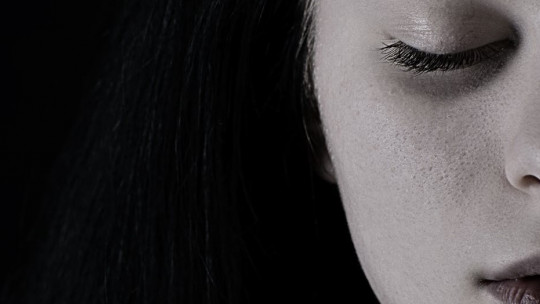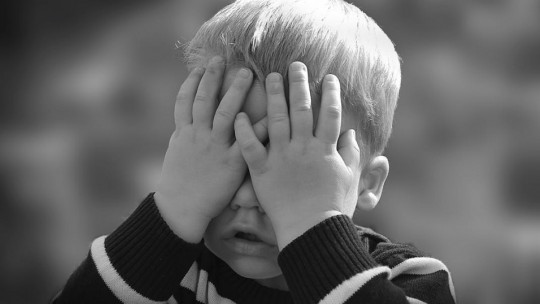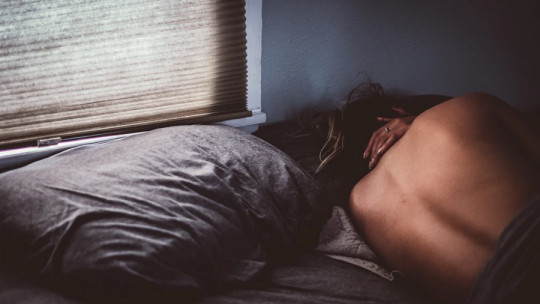atypical depression It is a type of depression that accounts for the complexity of this group of mental disorders. It is an example that what we popularly call “being depressed” is a complex psychological phenomenon that can be expressed under a wide variety of symptoms that can be classified in different ways.
Next we will see what the symptoms of atypical depression are, What characteristics differentiate it from other types of depression? and what kinds of treatments have been shown to be effective in intervening in these cases.
What is atypical depression?
Atypical depression is a depressive disorder that, despite presenting many of the characteristics of major depression, also expresses other atypical and uncommon symptoms in this type of psychopathological alteration.
For example, although the main symptoms of this group of disorders are present in atypical depression, such as sadness or anhedonia and avolition, other signs and symptoms also appear, such as an exaggerated reaction to events perceived as negative, an extreme increase of sleep and the need to sleep, etc.
Generally speaking, atypical depression It is considered not very prevalent, that is, rare and rarely diagnosed. Most cases of depression receive another diagnosis.
Symptoms of atypical depression
The symptoms of atypical depression can be very varied, especially taking into account the infrequency with which it is diagnosed. Among the signs and symptoms most related to this type of depression are the following.
1. Hypersomnia
The person feels a deep need to sleep, which causes psychosocial and work problems since it interferes with your work. This also produces greater isolation, and has a negative impact on the possibility of developing motivating projects.
In the end, the problems organizing a schedule, as well as the lack of social life that is a consequence of hypersomnia, mean that the daily life of the person with atypical depression becomes increasingly monotonous, lacking novel stimuli.
2. Hypersensitivity
Many people with atypical depression feel that any sign means that there is a negative situation for them. For example, an ambiguous reaction from another person is interpreted as a sign of rejection or ridicule, or a relative failure, such as not making it on time to a bus that has already left, is seen as a sign that the day will be catastrophic. .
However, This reactivity usually also appears when faced with positive events. although to a lesser degree than that expressed in unpleasant situations. This ability to react relatively cheerfully to positive situations is something that does not occur in most cases of depression, and is one of the distinctive characteristics of atypical depression.
3. Extreme increase in appetite
In major depression, patients typically experience a significant decrease in the feeling of hunger, coupled with a general attitude of passivity and lack of initiative.
In atypical depression, however, hyperphagia is relatively common closely associated with psychological states marked by excess anxiety. For this reason, binge eating and frequent visits to the refrigerator may appear, which appear as a form of compensatory behavior, to distract oneself from those thoughts that generate anxiety.
4. Extreme fatigue
Many patients with this type of depression feel despondent that leads them to remain at rest for a long time in a bed or sofa. This, at the same time, contributes to them feeling more isolated and alone which feeds the vicious cycle of depression. The lack of energy is expressed in all facets of life, from work life to social life and attention to the basic needs of food, hygiene and home care.
5. Anxious states
This is a group of symptoms related to anxiety states typical of other mental disorders and which, in the case of depressive disorders, are much less common. For example, the person with atypical depression may feel anxious when aware of her poor condition, or may worry a lot about the image he is giving to others. This feeling of discomfort adds to the damage to quality of life caused by the symptoms typically associated with depression.
Its causes
As occurs in most mental disorders, the reason why atypical depression appears has to do with multi-causal phenomena. This means that biological and genetic elements participate in its existence, but also cultural elements and, furthermore, factors associated with the learned dynamics of interaction with the environment and with other people.
For example, a traumatic event can trigger genetically latent biological processes, and the way in which this experience is lived will be influenced by the culture that has been internalized and by learning and customs. Neither environment nor genetics are solely responsible for atypical depression.
Treatments
Psychotherapeutic intervention It is very relevant in the treatment of atypical depression, since it allows patients to be trained in a large number of habits and social skills that will allow them to improve their quality of life (without completely making the symptoms disappear).
Specifically, cognitive behavioral therapies allow acting on both daily behavioral habits and ideas, beliefs and thinking styles, to achieve effects both on actions linked to movement and interaction with the environment and on the mind and the way in which the one who perceives and interprets what is happening.
As for treatment with psychotropic drugs, this is also common in medical intervention in cases of atypical depression, especially taking into account the severity of this disorder and the way in which it affects practically all areas of personal and work life.
The most commonly used medications are usually antidepressants. such as selective serotonin reuptake inhibitors (SSRIs) and monoamine oxidase inhibitors (MAOIs). Both are drugs whose use can only be initiated by medical prescription, and their consumption must be monitored by expert personnel in mental health and psychiatry.









